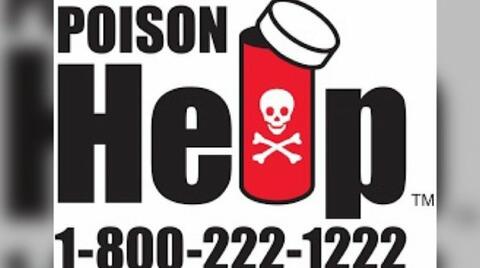With the unofficial start to summer upon us and the easing of many COVID-19 restrictions, New Jersey residents are ready to get out and enjoy the warm weather.
Not only will people be celebrating the long holiday weekend, but also the beginning of returning to pre-pandemic activities.
While we must continue following proven safety protocols to limit the spread of COVID-19, we also need to protect our health from common summer hazards that have the potential to cause serious poisoning injury.
“As the public celebrates the much-anticipated summer season, our poison center prepares for an uptick in calls related to warm weather poisoning hazards,” Diane Calello, executive and medical director of the New Jersey Poison Control Center, said. “Our summer calls range from food and alcohol poisoning to backyard/pool chemicals and heat-related illnesses.
Summer is meant to be spent outdoors having fun, not in the emergency room/department. Keep your friends and families safe by being aware of potential poisoning hazards that lurk in and around our homes during the summer.
“Accidental poisonings don’t just happen to young children, they happen to all including our pets. Since we come in contact with potential poisoning hazards in our daily home, school, work, and outdoor environments, it’s important to know to call your local poison control center for help if you have contact with something dangerous.”
Follow the poison safety strategies below to prevent an accidental poison exposure and potentially serious injury.
10 Ways to Prevent Summer-Related Poisonings
- When preparing food, do not cross-contaminate. Raw foods can be contaminated with bacteria, viruses and parasites which can cause severe illness (food poisoning). Wash hands with soap and water before and after handling raw food.
- Marinate food in the refrigerator and not on the counter to prevent bacteria from growing. Do not put the marinade that had contact with raw meat, fish, or poultry on cooked foods
- Use caution while being in the sun as some medications can greatly increase the risk for heat-related illness and/or severe sunburn even when using sunscreen. Limit your time in the sun during the hottest times of the day. Apply and reapply broad-spectrum sunscreen that is water-resistance, SPF 30 or higher, and contains zinc oxide and/or titanium dioxide as active ingredients.
- Carbon monoxide (CO) poisoning is a serious threat even during the summer. If you lose power, place gas generators at least 20 feet away from your home and your neighbors. Grills and camp stoves should never be used inside campers, tents, and boat cabins. When boating, do not idle and always swim and play away from rear swim decks or water platforms where engines usually vent.
- Store charcoal lighter fluid and lamp/torch oil in locked cabinets, away from food and drink items. Lamp oil refill bottles closely resemble juice containers and mistaken identity mishaps happen often. Swallowing these products can lead to serious poisoning and even death in children and pets.
- Use caution when drinking alcoholic beverages while taking medicine. Many ingredients used in medicines can interact dangerously with alcohol causing side effects like nausea, vomiting, drowsiness, fainting, and/or loss of coordination. Dangerous interactions can still occur even if the medicine and alcohol were not ingested at the same time.
- Do not pick or eat plants/mushrooms growing in the wild, even those you find in your own yard. Many people suffer serious health effects and even die each year from mushroom poisoning.
- Clean up immediately after parties. Cigarette butts, alcohol, liquid nicotine/vaping devices, and THC-containing products including edibles can be extremely dangerous to both children and pets. Even swallowing small amounts of these products can be dangerous and cause serious health effects including death.
- Be on the lookout for poison ivy, oak, and sumac when spending time outdoors. These poisonous plants are common causes of seasonal, allergic contact dermatitis (rash). When touched, the oils from the plant can cause a mild to severe itchy rash – blisters, swelling, and redness. Do not scratch the rash as the dirt from your nails and hands can cause an infection.
- When using powdered chlorine to treat a swimming pool, avoid shaking the container to minimize dust, fumes and splashes. Open containers only in well-ventilated areas and preferably outdoors. Never mix chlorine with ammonia, an acid, or other cleaning solutions. Doing so produces toxic gases that can have life-threatening effects.
If you have questions, concerns, or an emergency regarding something potentially dangerous, contact the medical professionals at your local poison control center, 1-800-222-1222.
Do not wait until symptoms occur or spend time looking for medical information online.
Get the immediate medical help you or a loved one needs from your local poison center. Poison control center services are free, confidential, available 24/7, and information can be communicated in any language.
If someone is unconscious, not breathing, hard to wake up, or having a seizure, call 9-1-1 immediately.
New Jersey residents can reach their poison center in the following ways: Call the Poison Help Hotline (1-800-222-1222), Text (973-339-0702), or Chat via the Poison Center’s website.
